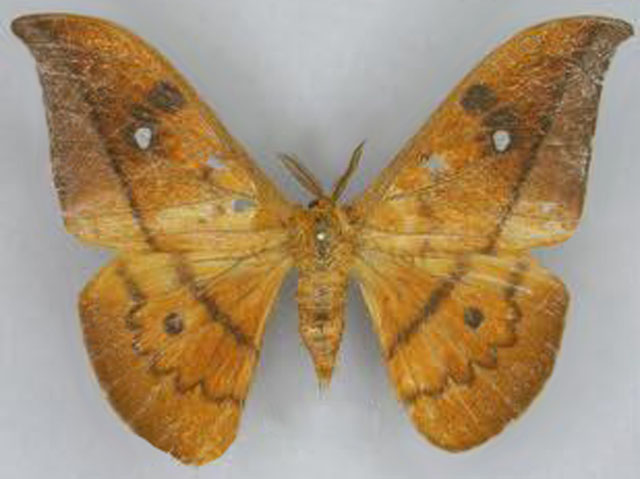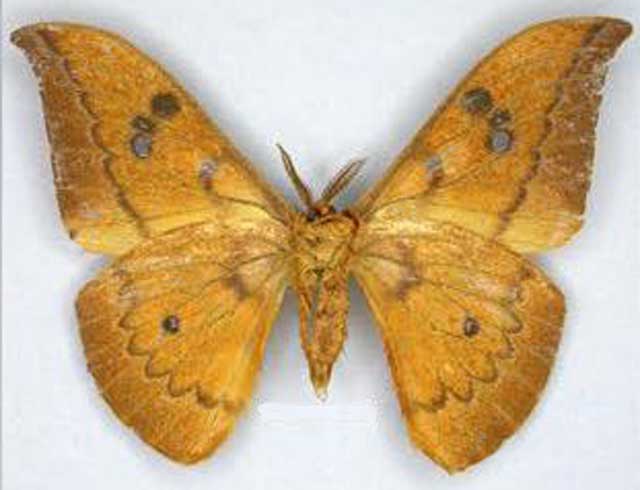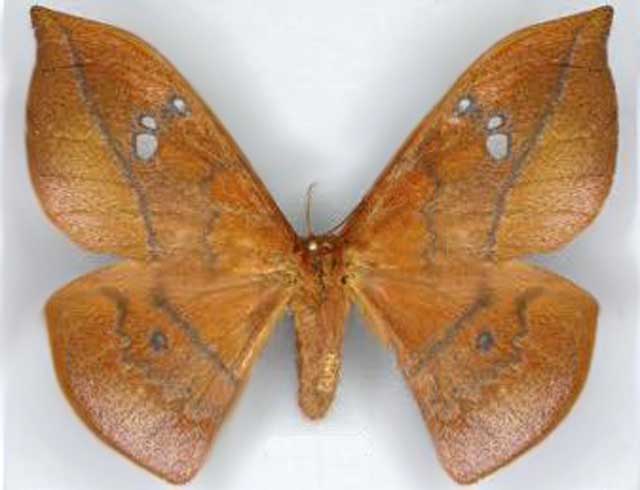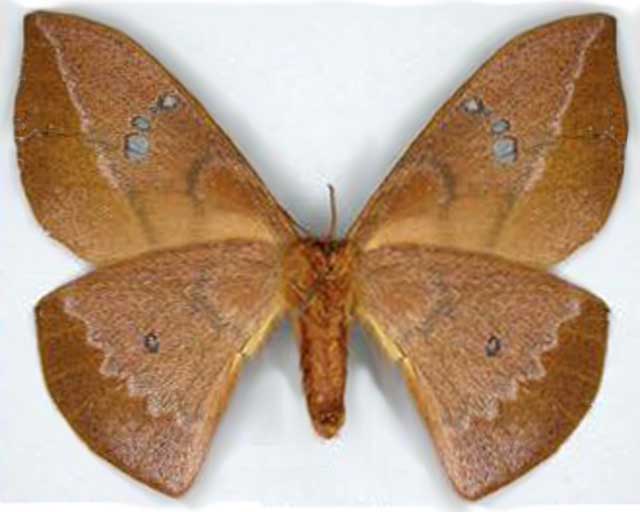Cricula sokola
|
|
Updated as per Nachr. entomol. Ver. Apollo, N. F. 38 (4): 169–180 (2017); courtesy of Stefan Naumann; February 4, 2019
|
Cricula sokola
Stefan Naumann, Wolfgang A. Nässig and Swen Löffler, 2017

Cricula sokola HT male, Ba Na Mts., Da Nang. Vietnam,
58mm, March 2014, 950m, courtesy of Stefan Naumann.
| TAXONOMY:Superfamily: Bombycoidea, Latreille, 1802
Family: Saturniidae, Boisduval, [1837] 1834
Subfamily: Saturniinae, Boisduval, [1837] 1834
Tribe: Saturniini, Boisduval, [1837] 1834
Genus: Cricula, Walker, 1855
|
DISTRIBUTION:
Cricula sokola (wingspan: males: 58mm; females: mm) flies in
Vietnam: Da Nang: Ba Na Mountains at elevations near 950-1700m.
It has also been taken in the following provinces: Quang Ngai; Kon Tum; Lam Dong.
Etymology: "sokola" means chocolate-brown, typical of ground colour of most males; the HT male is a lighter orange-brown compared to most other males.

Cricula sokola HT male, Ba Na Mts., Da Nang. Vietnam,
58mm, March 2014, 950m, courtesy of Stefan Naumann.
FLIGHT TIMES AND PREFERRED FOOD PLANTS:
The Holotype male was taken March, 2014. Specimens have also been taken in September-October.
Larvae will probably accept fruit tree foliage: apple, cherry, pear, possibly Liquidambar.

Cricula sokola HT male, Banto Mts., Quang Ngai,
Vietnam,
64mm, September 2014, 950m, courtesy of Stefan Naumann.
ECLOSION, SCENTING AND MATING:
Females extend a scent gland from the tip of the abdomen to call in the males.
Males use well-developed antennae
to track the airbourne pheromone. Possibly the males fly at dusk or dawn as they are not as often encountered at lightts.

Cricula sokola HT male, Banto Mts., Quang Ngai,
Vietnam,
64mm, September 2014, 950m, courtesy of Stefan Naumann.
EGGS, LARVAE, COCOONS AND PUPAE:
Immature stages are unknown as of this writing.
Larval Food Plants
It is hoped that this alphabetical listing followed by the common name of the anticipated?? foodplant
will prove useful. The list is not exhaustive. Experimenting with
closely related foodplants is worthwhile.
Liquidambar ....... ??
|
Sweetgum
|
Return to Main Saturniidae Index
Return to Cricula Index



